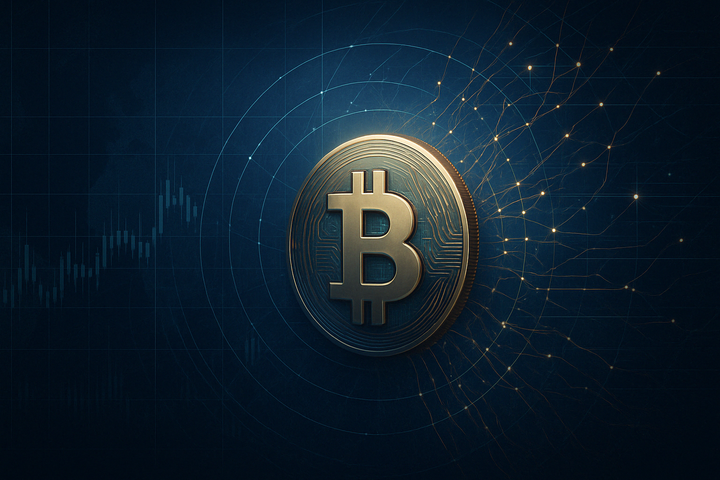Unlocking Decentralized Payments: Insights from Nostr’s Bitcoin Integration
In the October 24, 2024 episode of the Bitcoin Review podcast, the panel discusses the rapidly evolving Nostr protocol, with a primary focus on integrating Bitcoin payments into decentralized social interactions.

- My 'briefing notes' summarize the content of podcast episodes; they do not reflect my own views.
- They contain (1) a summary of podcast content, (2) potential information gaps, and (3) some speculative views on wider implications.
- Pay attention to broadcast dates (I often summarize older episodes)
- Some episodes I summarize may be sponsored: don't trust, verify, if the information you are looking for is to be used for decision-making.
Summary
The panel in the October 23, 2024 episode of the Bitcoin Review podcast explores how Nostr’s protocol introduces decentralized payments through innovative tools like zaps, Wallet Connect, and Digital Vending Machines (DVMs). By merging Bitcoin functionality with social interactions, Nostr offers a potential model for decentralized, transparent, and peer-driven finance. Discussants outline key opportunities and challenges, including privacy concerns, custodial trade-offs, and the impact of user-driven marketplace services, positioning Nostr as a pioneering force for peer-to-peer finance.
Take-Home Messages
- Nostr Zaps for P2P Payments: Nostr zaps allow seamless Bitcoin payments in social settings, making peer-to-peer finance more accessible.
- Balancing Privacy and Transparency: Privacy trade-offs in zaps highlight the need for secure, transparent systems in decentralized networks.
- Nostr Wallet Connect Simplifies Access: Nostr Wallet Connect enhances accessibility by allowing one wallet to function across multiple devices.
- Marketplace for Digital Vending Machines: DVMs create decentralized service opportunities, fostering a user-driven economy within Nostr.
- Custodial Considerations: Addressing custodial risks in public payments is essential for user trust and broader adoption.
Overview
In the October 24, 2024 episode of the Bitcoin Review podcast, the panel examines Nostr’s potential to redefine decentralized payments through key features like zaps, Wallet Connect, and DVMs. Nostr zaps, as small Bitcoin payments in a social network, allow users to quickly and publicly transfer value across social connections. This feature offers a way for Bitcoin to integrate into digital communities while preserving its decentralized nature, though participants acknowledge the challenges posed by zaps’ public visibility.
Nostr Wallet Connect introduces a streamlined, multi-device Bitcoin wallet experience, making Nostr more accessible to non-technical users. By allowing one wallet to connect across different clients, this feature enhances user accessibility and provides a foundation for Nostr’s adoption in everyday transactions. Wallet Connect’s intuitive structure could appeal to new users, supporting broader Nostr adoption as Bitcoin usage becomes simpler.
The discussion then turns to DVMs, a marketplace for automated services where users pay only for the services they need. This service-based approach empowers users to purchase micro-services, such as transcription or audio conversion, directly within Nostr, reinforcing the protocol’s potential as a decentralized platform for social and financial interactions. DVMs create a dynamic space where Nostr’s open-source nature enables organic growth and innovation.
Throughout the episode, the panel highlights challenges facing Nostr, such as custodial risks with zaps and the complexities in DVM service reliability. Nonetheless, they remain optimistic about Nostr’s decentralized structure as a unique driver for innovation and self-improvement, showcasing Nostr’s potential to challenge conventional social and financial systems.
Stakeholder Perspectives
- Developers: Focused on technical improvements and security enhancements to support usability and trust in Nostr.
- Privacy Advocates: Concerned about privacy trade-offs in public transactions and seeking features to enhance user anonymity.
- Bitcoin Enthusiasts: See Nostr as a pathway to increase Bitcoin adoption, with accessible tools for peer-to-peer finance.
- Regulators: Monitoring the privacy and security implications of Nostr’s decentralized, open-source ecosystem.
Implications
Nostr’s introduction of decentralized payment systems like zaps signifies a step toward peer-to-peer finance, particularly suited for social media contexts. The protocol’s open structure may influence regulatory discussions on privacy, as policy analysts explore frameworks to balance transparency with user protection. Privacy-conscious tools like Cashew tokens could encourage adoption by providing secure, semi-custodial options, addressing key privacy and custodial risks that would otherwise challenge user confidence.
For industry, Nostr’s Digital Vending Machines represent an opportunity for decentralized commerce, facilitating micro-transactions without intermediaries. The protocol’s marketplace could fuel novel business models centered on user-paid micro-services. As Nostr’s ecosystem grows, ensuring quality control and reliability within DVM services will be essential to maintaining platform credibility and user satisfaction, supporting its development as a trusted network for Bitcoin transactions.
Future Outlook
Nostr’s decentralized infrastructure provides a promising foundation for peer-to-peer finance, offering significant potential for mainstream adoption as more users explore zaps and Wallet Connect. As adoption increases, enhancements to privacy, custodial structures, and scalability will become critical, ensuring that the platform remains accessible while addressing users’ security concerns. If these adjustments succeed, Nostr could establish itself as a decentralized financial tool that appeals to mainstream users and technical audiences alike.
Looking ahead, the success of DVMs will play a crucial role in Nostr’s growth, shaping it as a versatile marketplace for various digital services. As user demands increase, scalable solutions and consistent quality control will be essential to maintaining reliability in this ecosystem. These advancements could help Nostr emerge as a leading decentralized network, transforming Bitcoin’s role in digital finance and fostering a global marketplace for peer-to-peer services.
Information Gaps
- Balancing Privacy and Transparency in Public Payments: Understanding how public payment systems like zaps can achieve a balance between transparency and privacy is critical. Research could explore technical solutions for secure transactions that maintain Nostr’s decentralized ethos, ensuring user confidence and trust.
- User Education Strategies for Nostr Zaps: Identifying effective strategies to educate users on Nostr zaps is crucial for bridging the knowledge gap and enhancing user adoption. Research into successful methods for explaining technical features could help increase accessibility and adoption among non-technical audiences.
- Quality Control for Digital Vending Machines: Establishing reliable quality control for DVM services would ensure user trust in Nostr’s decentralized marketplace. Research could identify standards for DVM reliability and security, setting benchmarks for high-quality services within a decentralized framework.
- Simplifying Technical Requirements for Broader Adoption: Simplifying Nostr’s technical complexity could widen its appeal, making peer-to-peer finance accessible to a larger user base. Research on potential simplification strategies would inform the development of user-friendly interfaces, fostering growth and engagement.
- Minimizing Custodial Risks in Cashew Tokens: Exploring ways to reduce custodial risks in Cashew tokens while retaining their usability could enhance user trust. This research could inform improvements in semi-custodial models, offering a secure, flexible payment option within Nostr’s ecosystem.
Broader Implications
Expanding Bitcoin’s Role in Decentralized Social Finance
The introduction of public zaps on Nostr broadens Bitcoin’s application within social finance, demonstrating its potential beyond just a store of value to also serve as a quick, informal payment tool. This shift could encourage Bitcoin adoption in social media and online communities, positioning it as the go-to currency for peer-to-peer transactions in a decentralized network. As adoption grows, zaps may catalyze a new wave of micro-payments, fostering increased Bitcoin use across diverse user demographics.
Privacy Challenges and Custodial Trade-Offs
The custodial model for zaps and public visibility raises privacy concerns, underscoring a need for solutions that protect user anonymity while maintaining transactional transparency. Nostr’s development of semi-custodial options, like Cashew tokens, could be a critical step in aligning privacy preferences with Bitcoin’s decentralized principles. Success in addressing these privacy challenges could position Nostr as a leader in privacy-conscious micro-transactions, influencing other platforms and sparking regulatory discussions around Bitcoin privacy.
Evolution of a Decentralized Marketplace
With the development of DVMs and Nostr Wallet Connect, Nostr is pioneering a marketplace model for decentralized services, which could lead to Bitcoin’s integration into a wider range of digital marketplaces. This system allows users to access and pay for services directly within a decentralized framework, reducing dependency on centralized financial platforms. As DVMs expand, they may showcase Bitcoin’s adaptability in decentralized finance (DeFi), potentially inspiring innovations in other sectors of the Bitcoin economy.
Scalability Pressures and Infrastructure Needs
The rapid growth in Nostr’s user base and increasing transaction volume may place pressure on Bitcoin and Lightning Network infrastructure, necessitating scalability solutions to manage the demand for real-time, micro-payment transactions. If Bitcoin infrastructure scales effectively to accommodate Nostr’s growth, it could validate Bitcoin’s long-term viability as a mainstream transaction system. Conversely, scalability constraints could impact Nostr’s functionality, underscoring the importance of ongoing development within Bitcoin’s technological ecosystem.



Comments ()